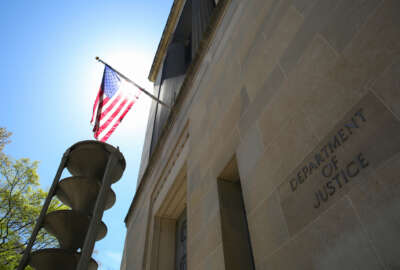Four generations: one workplace, many challenges
The typical workplace is made up of four generations with different learning and communication styles, different work-life balance needs, and different preferences...
wfedstaff | June 3, 2015 9:28 pm
By Suzanne Kubota
Senior Internet Editor
FederalNewsRadio.com
Federal managers have unprecidented opportunities to “rethink and redefine what is work and where is it done,” according to a new report titled Engaging a Multi-Generational Workforce–Practical Advice for Government Managers.
Co-author, Dr. Bonni Yordi told the Federal Drive there are three basic reasons for the change:
- A multi-generational workforce: The American workforce now spans four generations. The cohort known as the “Millennials” or “Gen Y” is the largest group to enter the workforce in U.S. history.
- An increasingly dissatisfied workforce: Over half of the American workforce is now unsatisfied with their job. Although the youngest workers are the least satisfied, older workers have the lowest satisfaction rates in two decades.
- Rapid technological change and innovation: Technology makes things possible that simply were not possible before in the workplace. For example, connecting with anyone, anywhere, anytime.
The trick, said Yordi, is to leverage the strengths of each of the generations.
In the report, we define each of the four generations, what they tend to have in common, what their traits are, what their experience is in the workplace. What we’re looking for is to help each generation have a better understanding or awareness of the perspective another generation may be coming from.
Not that we should stereotype generations, but there are some general overall traits that can help the manager, as long as they remember that each employee needs to be taken as an individual.
For example, said Yordi, consider the common traits of “Millennials,” those born between 1981 and 1990:
- Grew up in an era of financial boom
- Tend to be technology savvy and active in social networking
- Comfortable with multi-tasking
- Expect instant rewards or gratification
Experience in the workplace:
- Believe that work should be measured by results, not hours
- Actively seeks work-life balance
- Moved toward building parallel careers
Yordi said the millennials are “quite a bit different” from Boomers:
- Grew up in a healthy economic era
- Tend to be optimistic
- Often were “defined” by their job
- Demonstrate mixed attitudes toward authority and management
Experience in the workplace:
- Worked long hours
- Work was performed in the office
- Sought a stellar career
- Little emphasis on work-life balance
“If each generation is aware of the perspectives of the other generation,” said Yordi, “instead of being at odds with each other, they can learn to comunicate in ways that actually generate innovation and make the workplace a much more exciting place to work.”
For more, including six trends in the workplace and practical tips for managers, see Engaging a Multi-Generational Workforce–Practical Advice for Government Managers from the IBM Center for the Business of Government.
Copyright © 2025 Federal News Network. All rights reserved. This website is not intended for users located within the European Economic Area.





